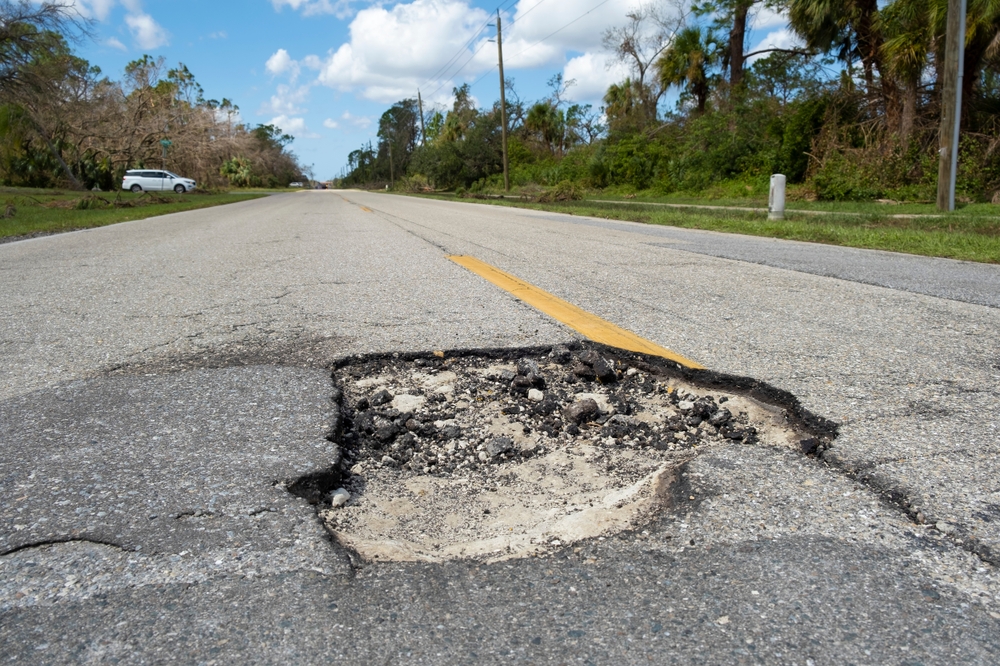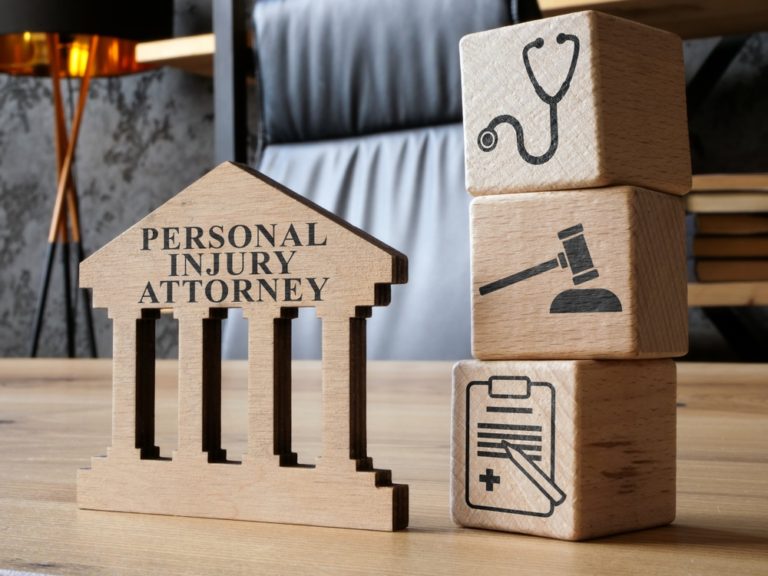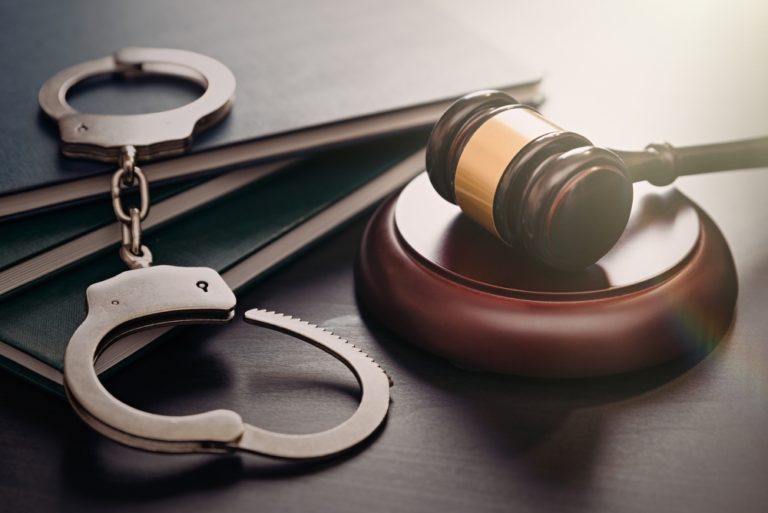Hawaii’s stunning landscapes beckons residents and visitors to explore its natural beauty. However, hidden dangers like holes in Hawaii in the ground can turn a pleasant stroll into a painful ordeal. If you’ve been injured due to a hole in the ground, you might wonder who’s responsible and how to seek compensation for your injuries.
At Olson & Sons, we understand the complexities of premises liability law in Hawaii. We’re here to help you understand your rights and guide you through seeking justice for your injuries.
Who Could Be Liable?
Determining liability for holes in Hawaii related injury depends on several factors, including:
1. Location of the Hole:
- Public Property: If the hole was on public property, such as a sidewalk, park, or government building, the responsible government entity may be liable. This could be the city, county, or state. As a municipal corporation, the City and County of Honolulu can be held accountable in such cases.
- Private Property: If the hole was on private property, such as a business, residence, or parking lot, the property owner or manager may be liable.
2. Cause of the Hole:
- Natural Causes: If the hole was caused by natural erosion, tree roots, or other natural phenomena, liability might be less clear. However, property owners still have a duty to inspect their premises regularly and address potential hazards.
- Negligence: If the hole was caused by negligence, such as a poorly maintained sidewalk, a construction project, or a utility excavation, the responsible party may be liable.
3. Notice of the Hole:
- Actual Notice: If the property owner or manager knew about the hole and failed to fix it or warn others, they may be liable.
- Constructive Notice: Even if the owner didn’t actually know about the hole, they may be liable if they should have known about it through reasonable inspection and maintenance.
Establishing a Premises Liability Claim
To establish liability, you need to prove that:
- The property owner or manager owed you a duty of care. This means they had a legal obligation to keep their premises safe for visitors or to warn them of any known dangers. This duty includes having actual or constructive notice of any hazardous conditions.
- They breached that duty of care through negligent maintenance, failure to repair a known hazard, or failure to warn of a hidden danger.
- The breach of duty caused your injury. You need to show a direct link between the hole in the ground and your injury.
- You suffered damages as a result of the injury. This could include medical expenses, lost wages, pain and suffering, and other losses.
Proving Your Case
Gathering evidence is crucial in a hole-related injury case. This may include:
- Photographs: Take pictures of the hole, your injuries, and the surrounding area.
- Witnesses: Obtain contact information from anyone who saw the accident or the hole beforehand.
- Medical Records: Document all medical treatment related to your injury. In similar cases, the trial court found that thorough documentation was crucial in establishing liability.
- Incident Reports: If you reported the incident to the property owner or manager, request a copy of the report.
Seeking Compensation
If you’ve been injured due to a hole in the ground, you may be entitled to compensation for:
- Medical Expenses: This includes past and future medical costs, such as doctor visits, hospital stays, surgery, medication, and therapy. Compensation for personal injuries often covers a wide range of medical expenses and related costs.
- Lost Wages: If your injury prevents you from working, you can seek compensation for your lost income.
- Pain and Suffering: This includes compensation for physical pain, emotional distress, and loss of enjoyment of life.
- Other Damages: Depending on the circumstances, you may be able to recover damages for disfigurement, disability, or other losses.
Hawaii’s Statute of Limitations
In Hawaii, you generally have two years from the date of your injury to file a personal injury lawsuit. It’s crucial to act quickly to preserve your legal rights.
Specific Scenarios and Liability Examples
Let’s explore some common scenarios where holes in Hawaii in the ground cause injuries and how liability might be determined:
- Sinkholes: These sudden ground collapses can occur due to natural causes or human activity, like underground pipe leaks. If a sinkhole opens on public property, the government entity responsible for maintaining the area could be liable. Such incidents can result in serious injuries, requiring extensive medical treatment and legal action. The owner might be responsible on private property if they fail to address warning signs of a potential sinkhole.
- Potholes: These common road hazards can cause serious damage to vehicles and injuries to pedestrians. In Hawaii, the government entity responsible for maintaining the road (state, county, or city) is typically liable for pothole-related damages. However, there are time limits for filing a claim, so prompt action is essential.
- Construction Sites: Construction sites are inherently hazardous, and holes, trenches, and uneven surfaces are common. If you’re injured due to a hole on a construction site, liability might fall on the general contractor, subcontractor, or even the property owner, depending on who had control over the area and who was responsible for safety measures.
- Utility Work: Utility companies often dig holes in Hawaii for maintenance or installation. If a utility company fails to secure or mark a hole properly, and you’re injured as a result, they may be held liable.
Comparative Negligence and Your Responsibility
Hawaii’s modified comparative negligence rule means that even if you were partially at fault for your injury, you may still be able to recover damages. For example, if you were distracted by your phone and fell into a hole, your compensation might be reduced based on your degree of fault. In some cases, the trial court erred in its assessment of fault, leading to appeals and further legal proceedings.
However, if your negligence is determined to be more than 50%, you won’t be able to recover any damages. It’s essential to be honest with your attorney about the circumstances of your injury so they can accurately assess your case.
The Role of Insurance in Hole-Related Injury Cases
Understanding how insurance plays into a hole-related injury claim is essential. Here’s what you need to know:
- Property Owner’s Insurance: If the incident occurred on private property, the owner’s liability insurance may cover your damages. However, insurance companies often try to minimize payouts or deny claims altogether. An attorney can negotiate with the insurer on your behalf.
- Government Liability: Government liability insurance may apply if the hole is on public property. These claims often have specific procedures and shorter deadlines, making acting quickly and seeking legal counsel crucial.
- Your Own Insurance: Depending on your situation, your health or auto insurance (if the hole caused a car accident) may help cover some of your medical expenses. An attorney can help you coordinate with your insurance providers to maximize your benefits.
Legal Defenses Private Property Owners May Use
Property owners and their insurance companies may try to avoid liability using various defenses. These could include:
- Open and Obvious Danger: They might argue the hole was easily visible, and you should have avoided it. However, this defense may not hold up if the hole is unavoidable or hidden by other objects. Property owners often use this defense to counter premises liability claims.
- Assumption of Risk: If you were engaged in a risky activity when you encountered the hole, they might argue you assumed the risk of injury. This defense is often used in cases involving recreational activities.
- Comparative Negligence: This defense argues that you were partially at fault for your injuries.
The Importance of Prompt Action
If a hole in the ground has injured you, time is of the essence. Evidence can disappear, witnesses may forget details, and the statute of limitations could expire. Taking these steps promptly can significantly strengthen your case:
- Seek Medical Attention: Your health is the top priority. Get immediate medical treatment for your injuries, and follow your doctor’s instructions.
- Document the Scene: Take photos of the hole, your injuries, and any relevant surroundings. If possible, obtain contact information from witnesses.
- Report the Incident: If the hole is on public property, report it to the appropriate government agency. If it’s on private property, notify the owner or manager.
- Consult an Attorney: An experienced attorney can guide you through the legal process, protect your rights, and ensure you receive fair compensation for your injuries.
The Importance of Personal Injury Attorneys
Hole-related injury cases can be complex, with multiple parties potentially liable and various factors affecting the outcome. An experienced personal injury attorney can help you navigate the legal process, gather evidence, negotiate with insurance companies, and fight for the full compensation you deserve. Personal injury attorneys have extensive experience in handling cases involving serious injuries and can provide valuable legal assistance.
At Olson & Sons, we deeply understand Hawaii’s premises liability laws and a proven track record of success in these types of cases. We’ll work tirelessly to investigate your case, build a strong legal strategy, and protect your rights.
Olson & Sons: Your Partners in Seeking Justice
Handling the legal complexities of a hole-related injury case can be overwhelming. At Olson & Sons, we have the experience and expertise to investigate your case, gather evidence, negotiate with insurance companies, and fight for your right to compensation.
We understand the physical, emotional, and financial toll that these injuries can take. Our compassionate attorneys will provide personalized attention and support throughout the entire process.
Don’t Suffer in Silence
If you’ve been injured due to a hole in the ground, don’t hesitate to seek legal help. Your health and well-being are too important to ignore. Contact Olson & Sons today for a free consultation. We’re here to listen to your story, answer your questions, and help you get the justice you deserve. Remember, the sooner you act, the stronger your case will be.
FAQ: Liability for Injuries Caused by Holes in Hawaii in the Ground
Who is responsible if I get hurt by a pothole in Hawaii?
In most cases, the government entity responsible for maintaining the road (state, county, or city) is liable for injuries caused by potholes. It’s crucial to file a claim promptly, as there are deadlines for taking legal action.
Can I sue a private property owner if I’m injured by a hole in their property?
Yes, you can sue a private property owner if their negligence caused a hole that resulted in your injury. This could include a poorly maintained sidewalk, an unmarked construction area, or a hidden hazard.
What if I was partially at fault for falling into a hole? Can I still get compensation?
Hawaii follows a modified comparative negligence rule. This means you can still recover damages even if you were partially at fault, as long as your fault doesn’t exceed 50%. However, your compensation may be reduced based on your degree of fault.
How long must I file a lawsuit for a hole-related injury in Hawaii?
The statute of limitations for personal injury cases in Hawaii is generally two years from the date of the injury. The Hawaii Supreme Court has upheld this rule in various cases, emphasizing the importance of timely legal action. It’s essential to consult an attorney as soon as possible to ensure you meet all deadlines.
What kind of compensation can I get for my hole-related injuries?
You may be able to recover compensation for medical expenses, lost wages, pain and suffering, and other damages related to your injury. The amount of compensation will depend on the severity of your injuries and other factors in your case.
Do I need a lawyer to handle my hole-related injury case?
While you’re not legally required to have a lawyer, it’s strongly recommended. An experienced attorney can help you navigate the legal process, gather evidence, negotiate with insurance companies, and fight for your rights.
How do I find a good personal injury lawyer in Hawaii to help with my case?
Look for a lawyer with experience in premises liability cases and a proven track record of success. Consider their knowledge of Hawaii law, communication style, and client reviews. Schedule a free consultation to discuss your case and see if they’re the right fit for you.
If a hole in the ground has injured you, don’t hesitate to seek legal help. Contact Olson & Sons today for a free consultation. We’ll evaluate your case, explain your options, and guide you through the legal process to seek the compensation you deserve.
Related Content: How Does Personal Injury Law Work in Hawaii?






